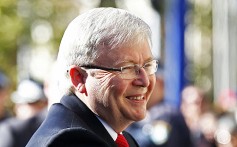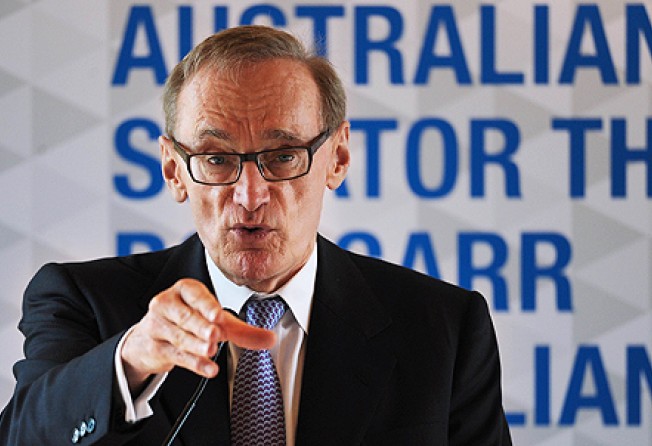
UN ‘troubled’ by Australia’s Papua New Guinea boatpeople plan


In its first assessment of the hardline policy announced a week ago by Prime Minister Kevin Rudd, the United Nations High Commissioner for Refugees said it was concerned greater numbers of asylum-seekers could be sent to the poor and developing nation.
“UNHCR is troubled by the current absence of adequate protection standards and safeguards for asylum-seekers and refugees in Papua New Guinea,” it said in a statement.
Australia resumed sending asylum-seekers offshore to PNG’s Manus Island and the Pacific state of Nauru last year in a bid to deter record numbers of asylum-seekers arriving by boat. Hundreds have drowned making the perilous journey.
But under the new arrangement, which the UNHCR said raised serious and so far unanswered questions, they will not only be processed in PNG but permanently resettled there if found to be genuine refugees.
Australian Foreign Minister Bob Carr defended the arrangement on Friday, saying that without it Canberra’s immigration policy would essentially be contracted out to smugglers “who don’t give a damn” about their human cargo.
... we cannot allow people smuggling to figure more and more, to become stronger and stronger
Carr said that the number of asylum-seekers arriving each year, which he said was 40,000, makes up 20 per cent of the Australian migrant intake.
Speaking in Hong Kong on Friday, he said Australia had “no alternative but to do this”.
“The UN has made its observations I understand, but we believe as a proud party to the convention on refugees that we cannot allow people smuggling to figure more and more, to become stronger and stronger,” he told reporters on the sidelines of a luncheon with the Australian business community in Hong Kong.
“What we are looking at is the privatisation or the contracting out of Australian immigration to people smugglers who don’t give a damn about what happens to the human cargoes on the high seas,” he said, adding: “You’ve got to break this model”.
Rights groups have already criticised the state of facilities on Manus and Nauru, and the UNHCR said there were also legal considerations.
“UNHCR’s assessment, based on recent visits to PNG, is that there are currently significant shortcomings in the legal framework for receiving and processing asylum-seekers from Australia,” it said.
“These include a lack of national capacity and expertise in processing, and poor physical conditions within open-ended, mandatory and arbitrary detention settings.
“This can be harmful to the physical and psycho-social well-being of transferees, particularly families and children.”
The UNHCR said while problems were being addressed, it was “concerned at the prospect of further transfers taking place under the new (arrangement) ... in the absence of appropriate protection guarantees and to what will remain temporary facilities on Manus Island for the foreseeable future”.
It also criticised the plan to resettle foreigners – many of whom are from Iran, Sri Lanka and Afghanistan – into the socio-economic and cultural life of Papua New Guinea.
The UN concern follows that of the Australian Human Rights Commission which on Thursday said Canberra risked breaching Australia’s legal obligations with the controversial policy.
“The Commission has repeatedly made clear its concerns that third country processing and the conditions on Manus Island may violate fundamental human rights,” president Gillian Triggs said.
Australia has battled to stem rising numbers of asylum-seekers arriving by boat in recent years, with more than 15,600 coming this year alone and more than 750 since Rudd announced his hardline policy.